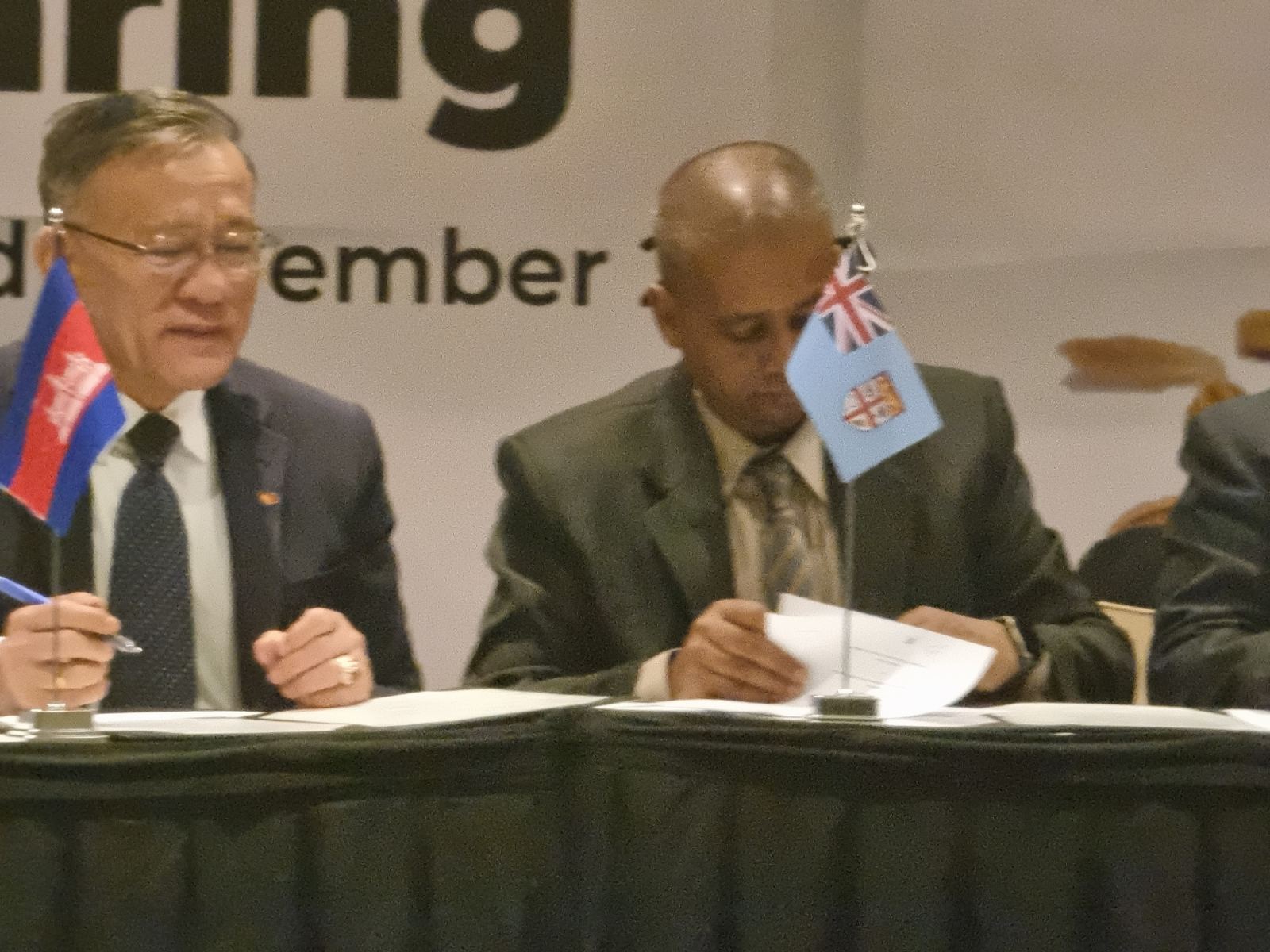Fiji signs seed sharing agreement in Bhutan
November 25, 2022

Picture: PS Agriculture signing the agreement with the International Rice Research Institute (IRRI)
Fiji signed an agreement with International Rice Research Institute (IRRI) and nine other countries namely, Bangladesh, Bhutan, Cambodia, India, Nepal, Philippines, Sri Lanka and Vietnam to speed up its rice research activities
The Permanent Secretary for Agriculture, Dr Vinesh Kumar signed the agreement during the Seeds without Borders Regional Cooperation for seed sharing meeting in Bhutan this week.
He said this is another milestone in the Fijian Agriculture Sector whereby we team up with nine other countries on a regional seed sharing agreement.
Seeds Without Borders is a regional seed policy agreement that speeds up the distribution of modern, climate-resilient rice varieties across nations to help vulnerable farmers establish a secure food supply for their families and earn higher incomes.
The agreement establishes common parameters for the release of rice varieties that have been tested, approved, and released in one country to be released in other countries without further testing and evaluation as long as they will be grown under similar agro-climatic conditions.
Seeds Without Borders builds on the success of the South Asia Regional Seed Policy Agreement signed in 2014 by the governments of Bangladesh, Nepal, and India. In its first three years, the agreement has enabled eight rice varieties to be released and shared across the three countries.
Over the years, the regional seed sharing agreement has expanded to include Bhutan, Sri Lanka and Cambodia and will expand to include other crops. The extension of this agreement to include other crops means signatory countries gain an added benefit from the high degree of cooperation that has been already achieved by working together on rice for years. Making a variety of agricultural crops available across borders is a major step forward for farmers and national agricultural systems.
Seeds Without Borders advocates the following approaches:
·
Joint evaluation of improved rice varieties for
release in areas in different countries but with similar agro-climatic
conditions;
·
Collaboration to resolve issues on ownership,
intellectual property rights, and germplasm exchange;
·
Reciprocal acceptance of research data and
results of farmers’ participatory varietal selection activities generated in
one country to support varietal release in other countries;
·
Streamlining evaluation to reduce processing
time from two to three years to only one;
·
Collaboration to formulate seed protocols and
guidelines compatible across countries;
·
Promotion of pre-release multiplication and
demonstration of breeding lines and varieties at advanced stages of release to
accelerate awareness among farmers and ensure a sufficient supply of breeder
seed once a variety is released; and
· Promotion of private-sector participation in seed systems to expand the seed supply
The Permanent Secretary for Agriculture was accompanied by the Head of Agriculture Research Mr Shalendra Prasad to the Seeds without Borders Regional Cooperation for seed sharing meeting in Bhutan.
-Ends-
